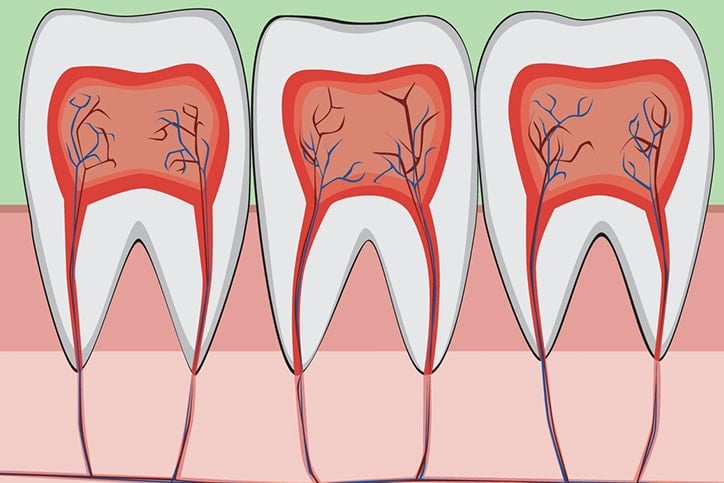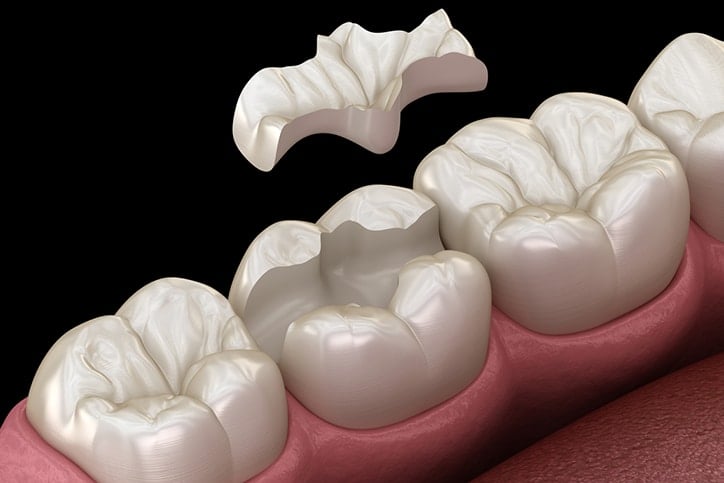It’s easy to be intimidated about what is unknown. When you are prepared and have extensive knowledge about a subject, it is a lot less scary. Root canal treatments tend to cause a lot of anxiety to dental patients, but we assure you, there is nothing to be afraid of. In this blog, we’ll break down everything you need to know about root canal treatments, so you’re ready for your procedure.

What is a root canal?
First and foremost, let’s discuss what a root canal is. Inside each of your teeth is a root canal system that contains a soft tissue called the pulp. This pulp contains blood vessels, nerves, and connective tissue. The tissue is protected by hard external layers of enamel and dentin. The elements contained in a tooth’s pulp are essential in growing the tooth’s root during development. Once you have all of your adult teeth, you no longer need the pulp as the surrounding tissues nourish the teeth.

Sometimes bacteria enters your tooth’s root canal system through cavities, cracks, or improperly done fillings. When germs enter the pulp, your tooth can become abscessed. An abscessed tooth causes pain and swelling. If it’s left untreated, it can lead to serious oral health problems.
When the pulp inside of your tooth becomes inflamed or infected, it will need to be removed. The inside of the tooth is carefully cleaned, disinfected, filled, then sealed.
What is a Root Canal Treatment?
A root canal treatment may seem daunting, but in reality, they are quick, comfortable procedures that will alleviate your pain, improve your overall oral health, and stop you from having to have your tooth removed and replaced.
The procedure involves your dentist numbing the area around your infected tooth, after that the dentist will protect the tooth being treated with a rubber dam. This prevents bacteria in your saliva from entering your tooth during the procedure. Once your mouth is frozen, the dentist will drill a hole into the tooth to access the damaged pulp. Using fine dental tools, they will enlarge and clean the tooth canal system and remove the damaged pulp. Once the canal is cleaned, the dentist will fill and seal the canal. The hole in the tooth will then be sealed with a temporary or permanent filling.
Root canal treatments will save your natural tooth and have the following benefits:
- Improved chewing, biting, and sensation
- Protected surrounding teeth
- Aesthetically-pleasing appearance
- Elimination of pain
- Prevention of tooth extraction
Tooth Restoration After A Root Canal Treatment
Following a root canal treatment, you will require tooth restoration, so your tooth looks, feels, and functions like a natural tooth. As aforementioned, at the end of a root canal treatment, your tooth will be sealed with a temporary filling if an endodontic specialist has performed the treatment. You will then have to come back for a follow-up appointment with a prosthodontist or dentist specializing in crowns, bridges, and implants. Depending on the strength and position of your affected tooth, the dentist will either use a permanent filling or a crown. For example, if you had a root canal treatment on one of your back molars, you will likely need a crown because chewing will put a lot of force on these back teeth.

Frequently Asked Questions About Root Canals
Now that you know more about what a root canal is and the procedure that goes into the treatment, we’ll answer some frequently asked questions.
Does a root canal treatment hurt?
Root canal treatments are relatively painless. They are equivalent to having a filling done. The area will be numbed so you will be comfortable while the dentist is performing the treatment. Following the procedure, you may feel mild discomfort but not as much as you would following a tooth extraction.
How do you know if you need a root canal?
If you have any of the following symptoms, you may need a root canal:
Extreme pain while eating
Swollen gums
Cracked or chipped tooth
Sensitivity to hot or cold temperatures
Book an appointment with a dentist immediately if you notice any of the above. They will do an X-Ray and determine whether or not you need a root canal treatment.
Can I work after getting a root canal?
Yes, you will be able to go to work or school if you’ve received a root canal treatment. Your mouth will be numb for a minimum of two hours and a maximum of four hours following the procedure. You should wait to eat or drink until your mouth is no longer frozen.
How much does a root canal treatment cost?
The cost for root canal treatment will vary from patient to patient. If the tooth is severely infected or in the back of your mouth, it will cost more because the treatment will be more complex. Fortunately, a lot of dental insurance policies provide coverage for endodontic treatment.
How Can Dentist North York Help With A Root Canal Treatment?
Dentist North York specializes in root canal treatment in North York. Our highly trained team of dentists has performed these routine procedures hundreds of times, so you’re in good hands with us. Contact us today, and we’ll answer any questions or concerns you may have about root canal treatments.
